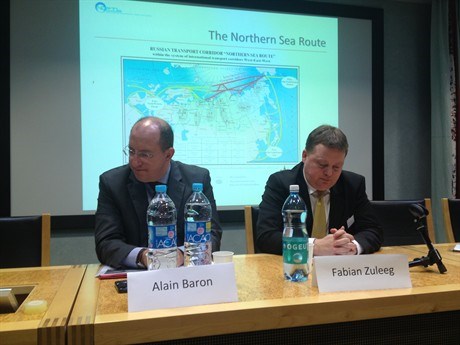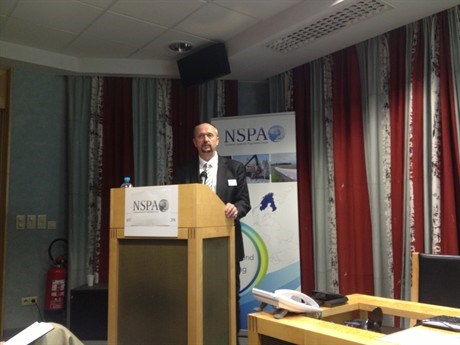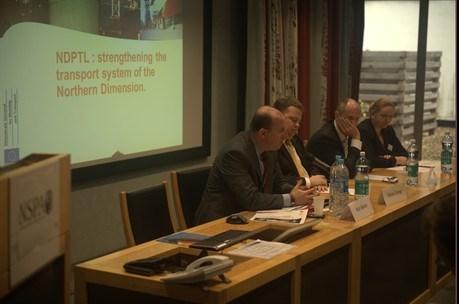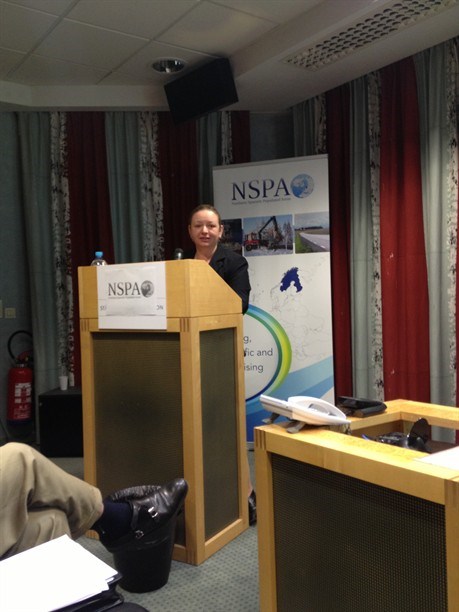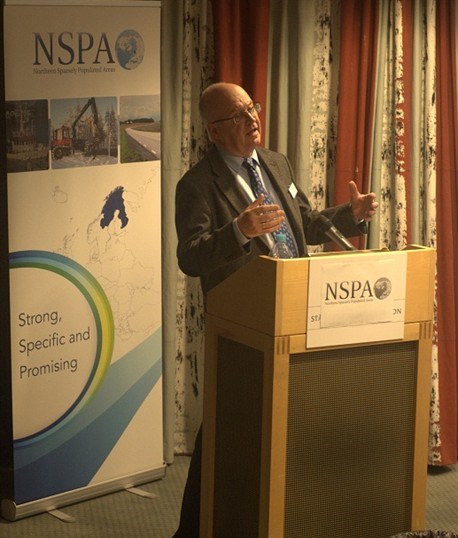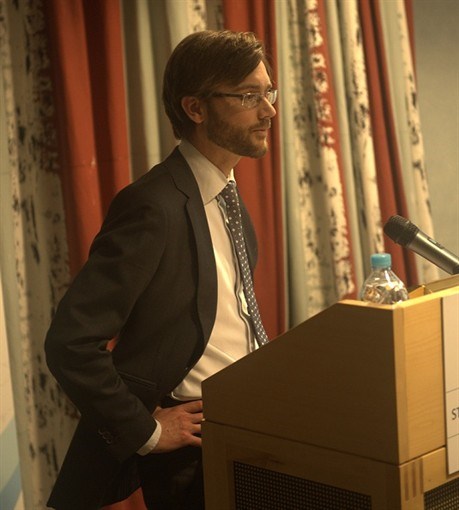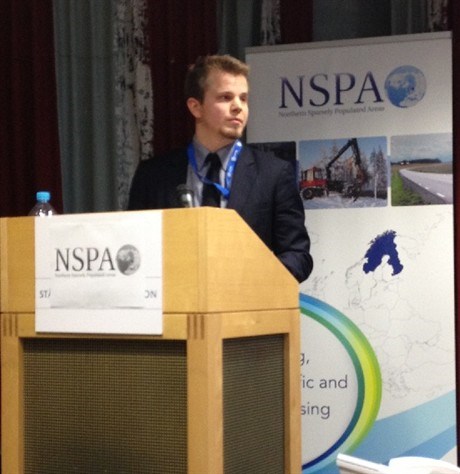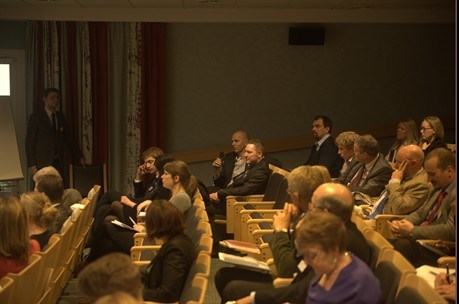Successful seminar on Transport Policy in the North
On the 7th of March, the NSPA network organized a seminar on Transport Policy in the North at the Swedish Permanent Representation to the EU. With speakers from the European Commission, the permanent representations of Sweden, Norway, Finland and Russia and the head of secretariat for the Northern Dimension Partnership on Transport and Logistics (NDPTL), the seminar attracted around 80 participants.
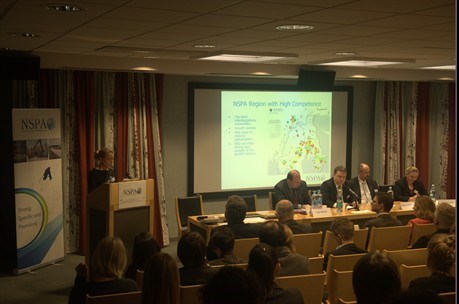
NSPA representative Satu Vehreävesa, Director Regional development, Regional Council of Pohjois-Savo, Finland welcomed the participants and introduced the seminar by giving a brief description of the NSPA. Sparse population, vast distances within the regions and to the market, harsh climate give challenges that require innovative solutions. Connectivity, accessibility and global transport networks are crucial for the regions of the NSPA.
The moderator, Fabian Zuleeg, Chief Economist, European Policy Centre, gave the setting of the seminar, emphasizing the important role of transport during a time of economic crisis to boost employment and long-term growth. He also stressed the importance to consider how investments are made, so as to maximize the positive effect on growth and jobs.
Alain Baron, Head of Sector, International Transport Relations, European Commission, DG MOVE, gave the European Commission's view on the NDPTL, stressing the role that NDPTL can play also for the logistic aspect, where there is a lot to be done. The NDPTL priorities complement the TEN-T and will be guiding in a future enlargement of the TEN-T. During 2013 the partnership enters in the more operational phase with concrete projects and achievements. The budget is small but can give important leverage. By the end of 2013 the definition of priority projects should be done to hopefully get more funding from European Commission and the partner member states.
-"What we want to show in the end of the year are some clear projects and concrete achievements to show the real added value of the partnership", Mr Baron said.
Oddgeir Danielsen, Head of Secretariat, NDPTL, painted the picture of the development of the Arctic and its raw materials, mentioning the fact that there is no current infrastructure in place to extract the resources of the Arctic but that it is possible to navigate the northern sea route also during the winter. Mr Danielsen pointed at other possible game changers as China investment Corporation, the International Maritime Organization (IMO) and the World Trade Organization (WTO). Also Mr Danielsen mentioned the role that the NDPTL can play in the removal of non-infrastructural bottlenecks, such as e.g. administrative ones. Mr Danielsen also stressed that the NDPTL has 4 equal partners; the EU, Russia, Norway and Iceland.
Participating in the seminar were also Marcus Nordmeyer, Transport Counsellor, Permanent Representation of Sweden to the EU, Olav Grimsbo, Transport Counsellor, Mission of Norway to the EU, Hannu Laurikainen, Transport Counsellor, Permanent Representation of Finland to the EU and Julia Zvorykina, Transport Counsellor, Permanent Mission of the Russian Federation to the EU.
Ms Zvorykina stressed that by developing the transport and infrastructure in the northern parts of Europe and Russia, we can make way for businesses to reach a very big market in Asia via northern Europe. The challenges to face are government budget limits and the fact that vast areas in Russia are almost completely unconnected to the main roads and railways. From the Swedish perspective, Mr Nordmeyer mentioned TEN-T and CEF and welcomed the European Commission's approach to include the outermost parts of the European Union. In Sweden investments in infrastructure are funded by appropriations of the state budget and there is not foreseen any change in policy. Mr Grimsbo pointed at the importance of transport infrastructure for competitiveness and mentioned that the High North is one of the main strategic priorities of the Norwegian government. Mr. Laurikainen pointed out the specificity of the north and stressed the need to develop transport in order to improve business opportunities, but that this requires cooperation from all parties.
The panel discussion was led by moderator Fabian Zuleeg and one of the questions raised was what is required from the regions to realize investments, whereupon some thoughts on private-public-partnerships were shared. The issue of the view of the regions in the north was also mentioned. It is not just about extraction of raw materials, there are also big innovative industrial clusters on ICT, tourism and more.
One of the achievements of the NDPTL so far is the agreement on common priorities but there is a great need for cross border cooperation in order to be able to work with not only infrastructural obstacles but also administrative ones.
Speakers' presentations:
